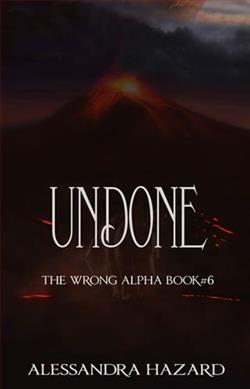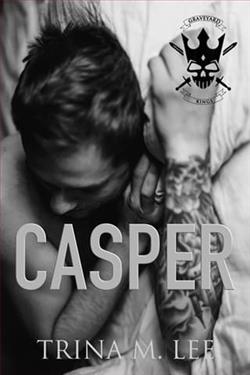Page 96 of The Monster's Daughter
I want to argue. There are still wound packs to sterilize, still water rations to distribute. But my legs have other ideas. I follow the sound of laughter, dragging one boot in front of the other until I hit the edge of a makeshift clearing.
There they are—at least twenty kids, darting between tents and crates, giggling like the galaxy’s never been on fire. Natalie’s in the middle of it all, racing with her arms flung out like wings. Her scales catch the dusk light, shimmering bronze and teal.
No one flinches.
No one whispers.
One of the kids tags her. “Dragon! You’re it!”
She snarls playfully and chases after them, teeth bared, roaring with delight. I collapse onto a crate and watch, hands limp in my lap, ash still clinging to my fingertips.
“Your kid’s fast,” a voice beside me murmurs.
I glance sideways. It’s one of the other volunteers—a tall woman with soot smeared across her forehead and a cracked datapad in her lap.
“She’s got her father’s reflexes,” I say softly.
The woman nods. “And your eyes.”
I don’t know how to respond to that, so I just smile. We sit in silence for a bit, the kind of quiet only a day’s worth of exhaustion can buy. The sky overhead has turned orange with gas flare. Smoke threads through the atmosphere like a second horizon. And yet, somehow, it’s beautiful.
That night, I’m back in our tent, muscles too tired to twitch. Kage is still out near the south line handing out ration packs. Natalie’s already asleep, curled under a heat blanket with her stuffed croc-beast under one arm and a half-eaten protein bar near her mouth. She snores softly—just like her dad.
I dig through my med bag until I find a tiny, beaten-up notebook. I haven’t touched it in years. Not since the war. Not since before Kage found us again. But tonight, something cracks open inside me.
I flick on the low light, pull out a stub of a stylus, and begin to write:
This galaxy is still broken. But it’s learning. And so am I.
I pause. Tap the stylus against the page. Then I add:
I used to think surviving meant fighting. Bleeding. Screaming into voids that never answered. But today, a girl with scales outran a boy with a limp. And they laughed like they’d never seen fire eat a home. That’s healing, too. Quiet. Sticky. Unremarkable. But real.
I set the notebook down and sit back, listening to Natalie breathe. There’s soot in my bra, dirt under my nails, and I’m wearing mismatched socks. My whole body aches. And still—I wouldn’t trade this moment for anything.
Kage slips in not long after. He crouches beside me, his voice low.
“You’re up late.”
“Just writing.”
He leans in and kisses my forehead. “Did you save the galaxy again?”
“Only a few city blocks this time.”
He smirks, peeling off his outer jacket and tossing it into the corner. “Show off.”
I pat the floor beside me. “Sit. Breathe. Be still.”
He does.
He sinks beside me with a low grunt, the weight of him settling the room. His bulk dwarfs mine, massive limbs folding down like tectonic plates easing into place. For a while, we say nothing, just sit there—husband and wife, parents, survivors of too many things to count—watching our daughter sleep under stars made of synthetic cloth and old wiring. Kage’s tail twitches once against the floor, then goes still.
Then he shifts, turns his head, his breath warm against my shoulder. “You think they’ll remember any of this? The kids?”
I wrap my arms around my legs, chin on my knees. “I hope not,” I say. “I hope they only remember the tag games. And the lollipops. And the fact that someone showed up when the fire came.”
Kage’s hand finds mine in the dark. His thumb brushes across my knuckles, tender despite the calluses and rough ridges. “Then we did good.”















